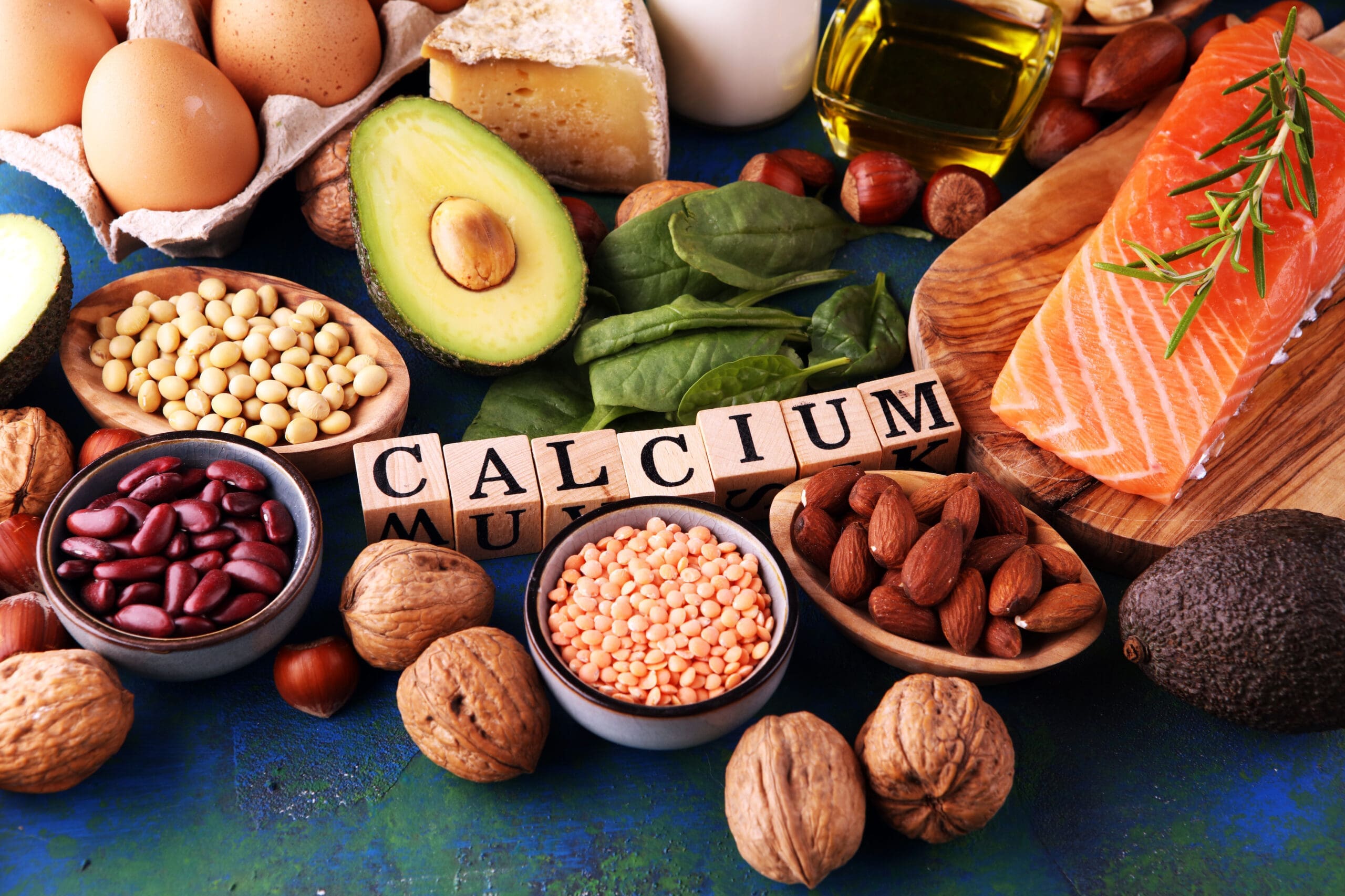Role of Calcium in our body:
Calcium is important for bone health throughout your life. Diet is the best way to get calcium into our body and can be included in our everyday meals and snacks.
Since our body doesn’t produce it’s own calcium, we must source it from our foods. Calcium can be found in a variety of foods, including:
- Dairy products, such as cheese, milk and yogurt
- Dark green leafy vegetables, such as broccoli and kale
- Fish with edible soft bones, such as sardines and canned salmon
- Calcium-fortified foods and beverages, such as soy products, cereal and fruit juices, and milk substitutes – Find the full list below.
To absorb calcium, your body also needs vitamin D. A few foods naturally contain small amounts of vitamin D, such as canned salmon with bones and egg yolks. You can also get vitamin D from fortified foods and sun exposure. The RDA for vitamin D is 600 international units (15 micrograms) a day for most adults.
The benefits of calcium
Your body needs calcium to build and maintain strong bones. Your heart, muscles and nerves also need calcium to function properly.
Some studies suggest that calcium, along with vitamin D, may have benefits beyond bone health: perhaps protecting against cancer, diabetes and high blood pressure. But evidence about such health benefits is not definitive.
The risks of too little calcium
Not getting enough calcium could result in a number of health problems including related to weak bones:
- Children may not reach their full potential adult height
- Adults may have low bone mass, which is a risk factor for osteoporosis
Children and adolescents are at risk, but so are adults age 50 and older.
Fruits & Vegetables High in Calcium
Fruits and vegetables that contain 200mg or more of calcium (20% of the daily value) are considered “high in calcium.”
Some of these are:
Fruits & Vegetables that Provide a Good Source of Calcium
Fruits and vegetables that contain 100mg to less than 190mg of calcium(10%-19% of the daily value) qualify as “good source of calcium.”
The following are examples of these:
Nuts:
- Almonds
- Walnuts
- Hazelnuts
- Brazil Nuts
- Sesame seeds
- Tahini Pate
Vegetables:
- Lettuce
- Kale
- Bok Choy/Pak Choi
- Broccoli
- Okra
- Cress
- Rhubarb
- Carrots
- Tomatoes
Fruits:
- Orange
- Apple
- Banana
- Apricot
- Currants
- Died Figs
- Rasins/dried Grapes
Beans and Lentils
- Lentils
- Chick Peas
- White beans
- Red beans
- Green/Fresh beans
- Black eyed Peas
MILK:
- Semi-Skimmed
- Skimmed
- Whole
- Milkshake
- Sheep Milk
- Coconut Milk
- Soy drink
- Soy drink, calcium enriched
- Rice drink
- Oat milk
- Almond milk
Meat and Fish:
- Egg
- Red Meat
- Chicken
- Fish (e.g. Cod, Trout, Herring, Whitebait)
- Tuna, canned
- Sardines in oil, canned
- Smoked Salmon
- Shrimp
Yoghurt:
- Flavoured Yoghurt
- Yoghurt mixed with Fruit
- Natural Yoghurt
Cheese:
Most cheeses are a good source of calcium





